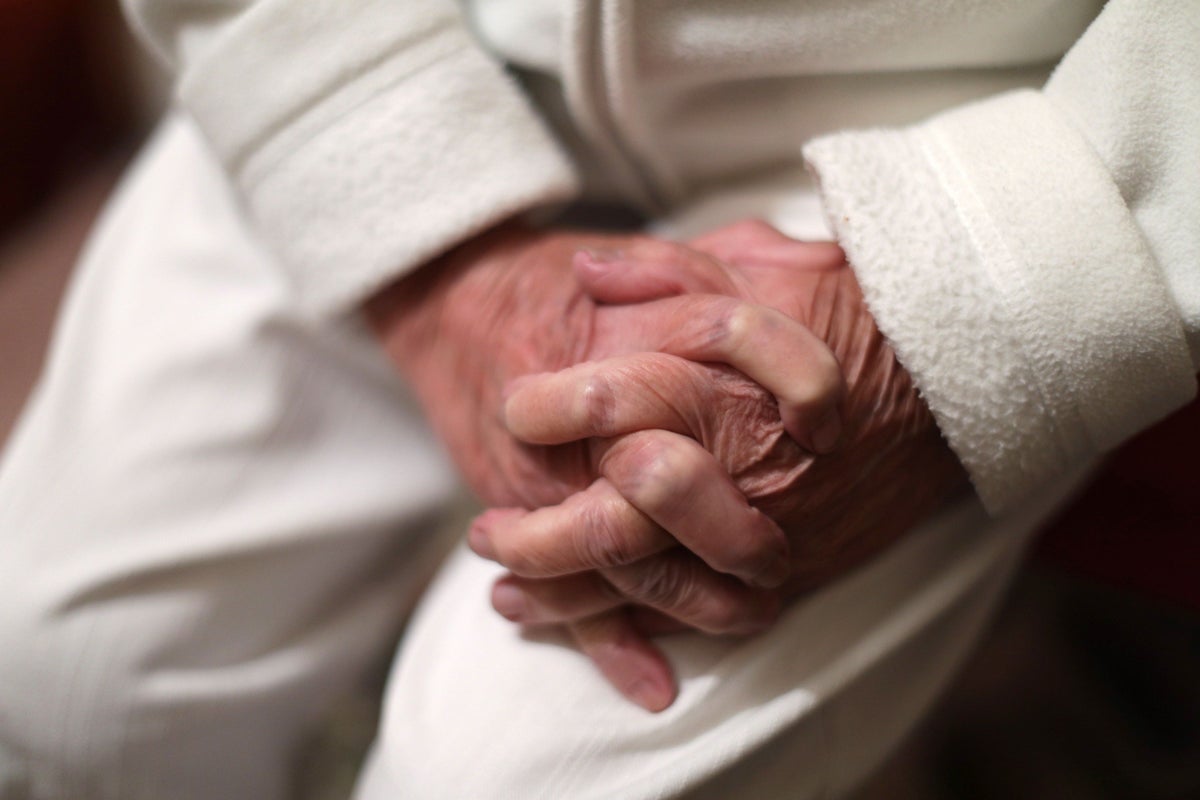
People with dementia are being treated with powerful antipsychotic medications for longer than guidelines recommend, according to researchers.
Doses are also higher than recommended, and stopping and restarting drugs is “common”, a study suggests.
Antipsychotic drugs can help manage the behavioural and psychological symptoms of dementia.
According to the National Institute of Health and Care Excellence (Nice), the drugs may be considered for patients with severe agitation or distress, but should only be given under specialist supervision.
Analysis by experts from University College London (UCL) looked at data from 9,819 people living with dementia aged between 60 and 85, who received their first antipsychotic prescription between 2000 and 2023.
The study found initial treatments lasted seven months, exceeding the Nice guidance of one to three months.
The analysis also showed almost one in five (18%) patients were given an initial prescription higher than the minimum effective dose.
Researchers said the findings, published in the Lancet Psychiatry, “highlight a persistent gap between clinical guidelines and real-world prescribing of antipsychotics in people living with dementia, underscoring the need for interventions that prioritise safety and person-centred dementia care”.
Dr Juan Carlos Bazo-Alvarez, of UCL’s department of primary care and population health, added: “Looking at about two decades of primary care data, we found that many people with dementia remain on antipsychotics longer than guidance recommends, and that stopping and restarting treatment is common.
“These insights from routine records can help clinicians make safer, more person-centred decisions about prescribing and reviewing medication.”
Of those who started on a moderate/high dose, some 519 (29%) had a moderate/high dose in all quarters of the first year of treatment.
Among patients who stopped the drugs, more than half (56%) restarted medication later.
Professor Irene Petersen, of UCL’s department of primary care and population health, added: “Our research highlights that there is a substantial gap between clinical guidelines and what is happening in practice.
“Perhaps it is time we re-evaluate the guidelines once again.”
Reacting to the findings, Dr Richard Oakley, associate director of research and innovation at Alzheimer’s Society, said: “These drugs can cause serious side effects when used inappropriately, increasing the risk of stroke and death.
“The guidance clearly states that people with dementia should only be given the lowest dose, for a short period of time. It is concerning that in some cases the guidance is not being followed and people are being put at risk of serious harm.
“Person-centred care that is tailored to an individual’s needs is an effective alternative way to manage symptoms like agitation and can reduce the need for these drugs.
“All adult social care staff should have quality dementia training so they can effectively provide the support people with dementia deserve.”
